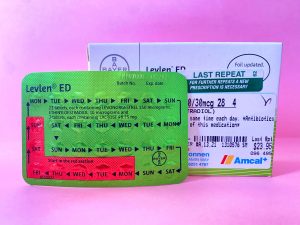Swine flu vaccine a waste, says expert
By ASHLEY LEAL
An infectious diseases expert says the swine flu vaccine rolled out last year is both a waste of money and can cause infection through its administration.
Professor Peter Collignon, a consultant in microbiology and infectious diseases at the ANU Medical School, says that the multi-dose vials the vaccine comes in can be shared between 10 or 20 people.
“There’s a risk that some of those vials get contaminated with blood, HIV, Hepatitis B, Hepatitis C and even bacteria,” he said this month.
“That’s not just theoretical.It’s happened in the past.”
The seasonal influenza vaccine comes in single-use vials, with less danger of cross-contamination.
The director for public health for the Greater Southern District, Tracey Oakman, says that following the northern hemisphere’s winter influenza outbreak, another wave of the swine flu, or H1N1 Influenza, is expected any day now.
“In the northern hemisphere, the flu came earlier than their normal flu season,” she said.
“Now we’re expecting our flu season will largely comprise of the H1N1 2009 strain. .
“The H1N1 strain will be in the seasonal influenza vaccine, as well as two other strains.”
Ms Oakman said the government ordered about 21 million doses of the H1N1 vaccine, but not all of these doses were distributed.
“Not everyone has put up their hand for the vaccine, and so we have some left over,” she said.
“My opinion is that it was a very responsible decision by the government…but there’s no point having too much if you can’t use it.”
Last month the Australian Government made its first donation of 600.600 doses of Australia’s pandemic vaccine to Laos, as part of an initiative led by US President Barrack Obama to provide developing nations with the H1N1 vaccine, according to the Department of Health and Ageing website.
Professor Collignon thinks that this initiative is entirely appropriate, but ordering 21million doses of the vaccine for Australia was unnecessary, saying that most people are now immune to the virus.
He believes that those in the known risk groups should be vaccinated, but most people should wait and receive the vaccine in the seasonal influenza vaccine from this month onwards (March, 2010).
Those with chronic conditions, such as diabetes, asthma, heart disease and also pregnant women are considered to be at the highest risk of becoming very ill or even dying if they contract the H1N1 influenza.
Professor Collignon said, “We don’t have a good way of prioritizing [these groups].
“Why rush now? In literally a month’s time, we’ll have a vaccine that’s delivered in a safer way and will protect you against more than just swine flu.”
For those who have already had the H1N1 vaccine, it is not yet known if there is any danger of a reaction to this season’s influenza vaccine.
“We’ve never vaccinated people within six months of each other with the same vaccine,” said Professor Collignon.
“We’ll just have to see what happens.”



Be the first to comment!